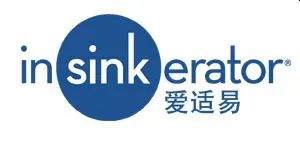Emerson Electric Co. (the plaintiff), owner of the brand "InkSinkErator" and "爱适易" (AI SHI YI) in Chinese for food waste processers (see below), sued trademark hijackers for unfair competition, based upon the facts that the accused infringers had tried to register its four trademarks as well as a number of trademarks being copies or imitations of other famous brands.

This is first precedent, wherein the trademark hijackers didn't put the trademarks into use, nor did them file malicious complaint based upon the hijacked trademark registration, that the Court find the defendants (hijackers) guilty of unfair competition acts, in violation of Article 2 1 of the Anti-unfair Competition Law of PRC, for filing trademarks being copies or imitations of the plaintiff's trademarks in bad faith. Before this precedent, it has never been ruled by Court that such acts of trademark hijackings constitute the acts of unfair competition.
The second-instance judgement was made by Fujian Province High People's Court on September 27, 2021, and it is final. According to the judgement, the plaintiff's "InSinkErator" food waste processors have been known to the public, and this brand is also used on water purification hot drink system. The defendants have been involved in the production and sales of water purification devices, which are relevant to the products of the plaintiff, and it is proper to confirm that the parties involved are competitors in the same industry of environment-friendly kitchen and bathroom equipment. The defendants have registered in multiple classes for the identical or similar "InkSinkErator" and "爱适易" (AI SHI YI) trademarks, including the following ones:

(trademarks registered by the defendants)
Apart from the above hijacked trademarks, the defendants have also filed many trademarks being copies or imitations of others' trademarks, such as DOW in Chinese, Alikes in Chinese and English, Daimler in Chinese, Daimler Chrysler in Chinese, InFocus in English and Chinese, Grundfos in Chinese, iPhone, Unilever in Chinese, Electrolux in Chinese, Morgan Stanley in Chinese, etc. from 2011 till 2019.
The Court find that the defendants didn't submit any evidence showing the use of the hijacked trademarks or explain its intension to register the marks in various classes, and how these trademarks were design. Such acts of trademark filings have obviously exceeded the normal needs for commercial activities. The plaintiff had to take legal actions, including opposition, invalidation action and litigation to protect its legitimate rights. To some extent, the normal business activities of the plaintiff have been disturbed by the acts of the defendants, which are against the good faith principle and also damage the market order of fair competition and harm the rightful interests of the plaintiff. So the Court find the acts of the defendant in violation of Anti-Unfair Competition Law of PRC, and the defendants should be ordered to stop infringement and pay damages.
It is also found that the trademark agency representing the trademark hijackers in this case should also bear legal responsibility for helping the trademark hijackings.
The Court award RMB1.6 million damages in total to the plaintiff for its losses and reasonable expenses for stopping infringement.
This is an important landmark case due to the following reasons:
This case clarifies that the acts of trademark hijackings alone constitute the unfair competition.
The defendant is prohibited to register identical or similar trademarks. The damages are determined according to the lawyers' fees incurred by the plaintiff for legal proceedings to fight against the trademark hijackings.
This case clarifies the legal liability of the actual controller of the infringing company and the trademark agency for their contribution to the trademark hijacking for the first time and finds that the actual controller constitutes joint infringement, and the agency constitutes helping infringement, which is also a breakthrough in the assumption of responsibility.
Footnote
1. Article 2 of the Anti-unfair Competition Law or PRC regulates that In production and business activities, business operators shall abide by the principles of voluntariness, equality, fairness and good faith, and abide by law and business ethics. The term "acts of unfair competition" as mentioned in this Law refers to the acts of business operators that violate the provisions of this law, disrupt the order of market competition and damage the legitimate rights and interests of other business operators or consumers in their production and business activities. Business operators as mentioned in this Law refer to natural persons, legal persons and unincorporated organizations engaged in the production and operation of commodities or the provision of services (hereinafter referred to as commodities include services)
The content of this article is intended to provide a general guide to the subject matter. Specialist advice should be sought about your specific circumstances.
